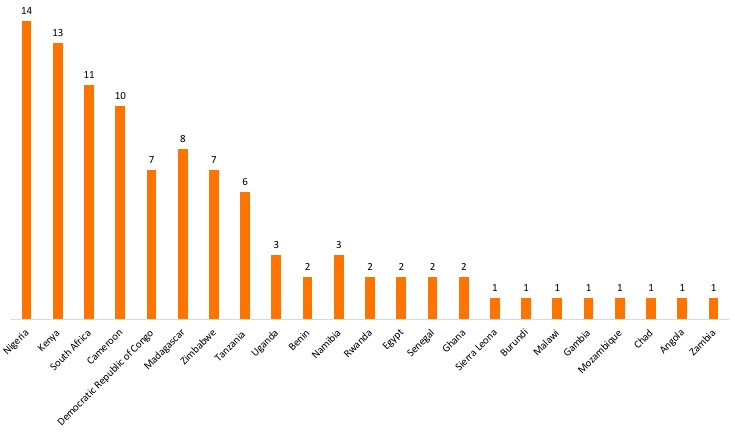
Nairobi, Kenya//-One hundred youth from 23 countries in Africa have been recognised today as the top youth leaders in conservation in the continent.
This is the first ever Top 100 young African conservation leaders list, a collaboration between the Africa Alliance of YMCAs , World Organization of the Scout Movement, African Wildlife Foundation and WWF to empower the efforts of youth talented Africans and inspire other youth in leading the way to ensure nature and people will thrive for generations to come. These exceptional young men and women have proven to be leading lights for sustainable development of the continent.
The youth have been advocating and creating huge positive impact in sustainable agriculture & food security, forest and land restoration, ocean protection, wildlife conservation, waste management, clean energy access and research, education and awareness.
These Top 100 youth and many more who did not make it to the list have demonstrated that the youngest generations are not the future, but the present driver for change in Africa.
Among those selected in the top 100 young African leaders, there are youth who have started their community based organisations to build the capacity of local populations on conservation issues in addition to pursuing research on endangered species and using the information to further strengthen their conservation initiatives.
Others have tapped into their hobbies, such as sports, to create awareness and act to protect and conserve nature through tree planting, clean up campaigns or recycling initiatives.
Millions of post-consumed plastics have been recovered from the environment, creating job opportunities, especially for women and youth, and indirectly met the social and economic needs of over thousands of households.
Others have been at the forefront of advocacy campaigns leading to national and international policy interventions targeting key conventions, to include CITES (Convention on International Trade on Endangered Species) and the CBD (Convention on Biological Diversity).
Thanks to some of these youth vast areas of forest reserves have been restored in the continent and co-operative movements have emerged to promote the equitable and sustainable use of the natural resources and to create value addition of agricultural products, helping communities earn more income from their produce.
Moreover, there are youth leaders who have set up their own eco-companies and have provided green jobs for many more. In short, these top 100 youth are leading extraordinary stories of impact.
In the selection process, youth networks and conservation organizations were invited to nominate young African leaders under the age of 35 who are actively involved in impactful conservation work at community, national, or international levels in Africa.
A total of 565 nominations were received from 425 conservation organizations and youth networks. The submission underwent a rigorous judging and verification process before we came out with the Top 100 youth African conservation leaders list.
In addition to being recognized in the first ever publication of its kind, the shortlisted Top 100 young African conservation leaders will be the beneficiaries of a bespoke one-year leadership development programme that will mentor them with systems thinking and practical skills to scale-up their initiatives.
Join us in celebrating and recognising the work of these 100 young African leaders by amplifying their voice and spreading their stories which can be found at https://top100youth.africa.
Graphic data showing the number of awardees per country

Instructively, the Africa Alliance of YMCAs is the umbrella body of YMCA National Movements in Africa, while African Wildlife Foundation (http://www.awf.org) is the primary advocate for the protection of wildlife and wild lands as an essential part of a modern and prosperous Africa.
And WWF is one of the world’s largest and most respected independent conservation organizations, with over 5 million supporters and a global network active in more than 100 countries and territories.
African Eye Report


